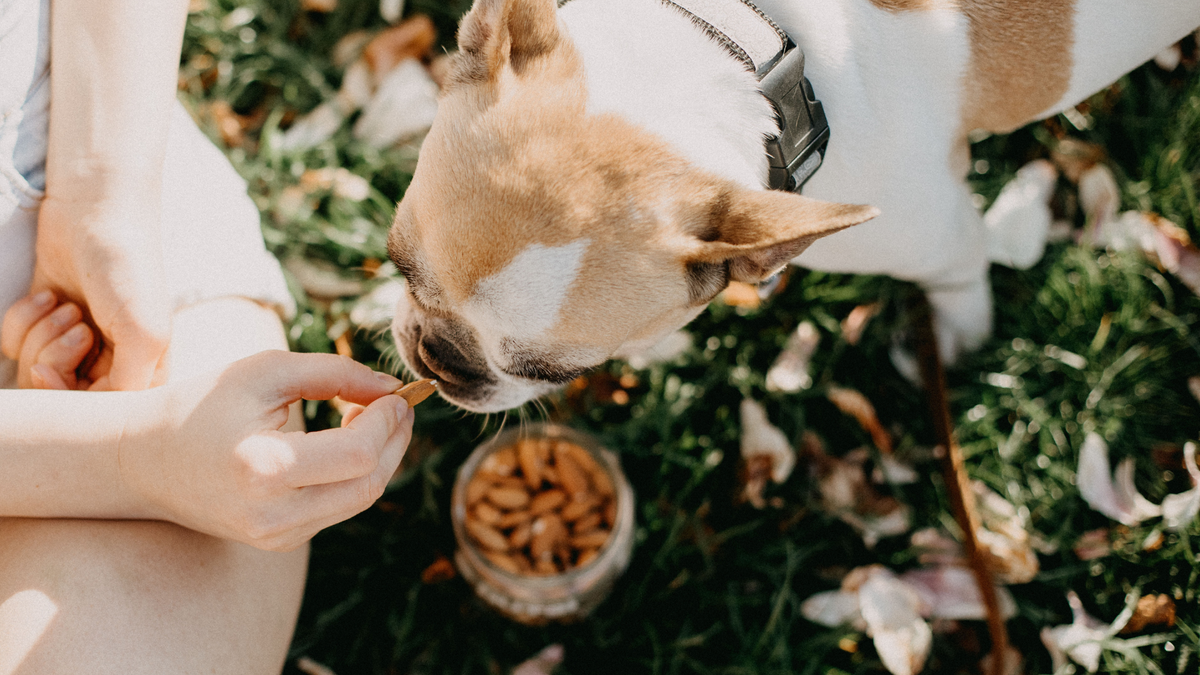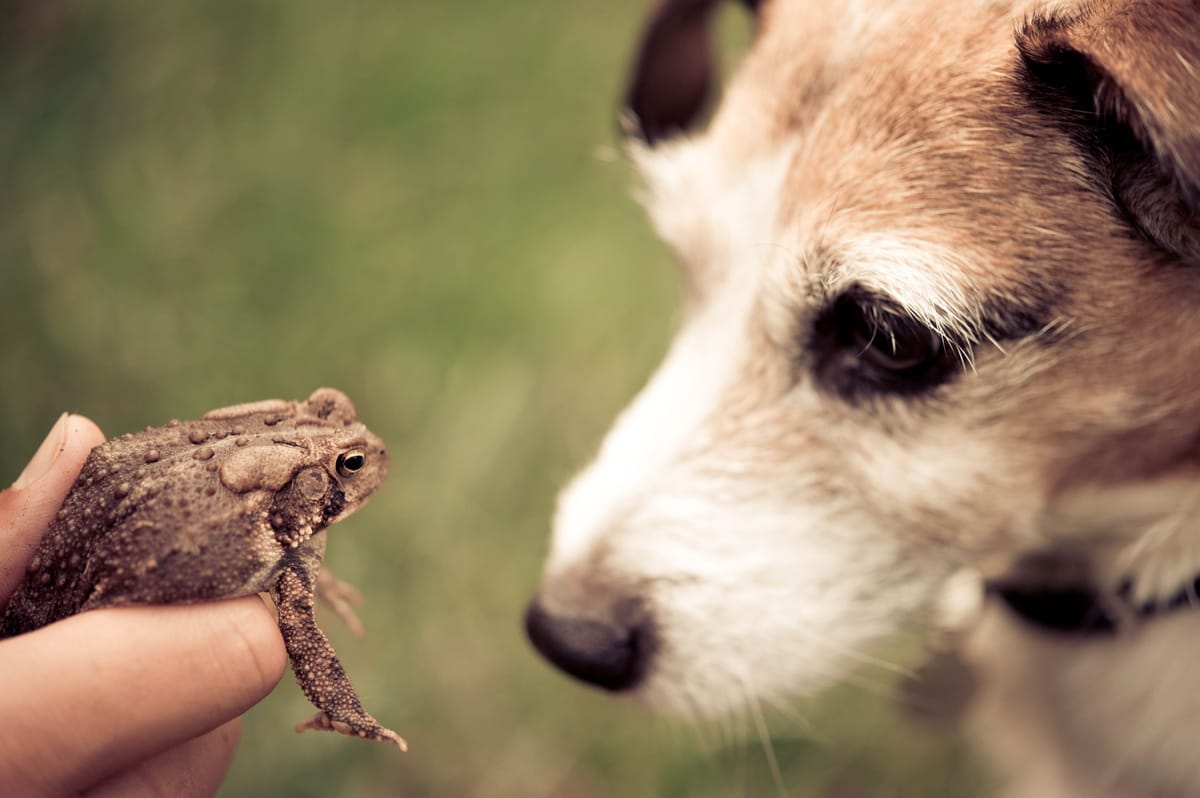If you're a dog owner, you know that your furry friend can get into just about anything. Unfortunately, this sometimes includes rat poison, which can be extremely dangerous for your pup. Rat poison contains chemicals that can cause internal bleeding and other serious health problems if ingested by a dog. If you suspect that your dog has eaten rat poison, it's important to act quickly to minimize the damage.

The first step if you suspect your dog has eaten rat poison is to call your veterinarian immediately. Time is of the essence in this situation, and your vet will be able to provide guidance on the next steps to take. Depending on the severity of the situation, your vet may recommend inducing vomiting or administering activated charcoal to help absorb the poison. It's important to follow your vet's instructions carefully to ensure the best possible outcome for your dog.
Recognizing Rat Poison Ingestion
If you suspect that your dog has ingested rat poison, it is important to act quickly. Here are some ways to recognize rat poison ingestion:
Identifying Symptoms of Rat Poisoning
The symptoms of rat poisoning can vary depending on the type of poison and the amount ingested. Some common symptoms include:
- Vomiting
- Lethargy
- Coughing
- Weakness
- Seizures
- Bruising
- Pale gums
- Nose bleeds
- Blood in stools
- Increased thirst
- Abdominal pain
- Lack of appetite
- Muscle weakness
If your dog is exhibiting any of these symptoms, it is important to seek veterinary attention immediately.
Distinguishing Types of Rat Poison
There are several types of rat poison, each with its own set of active ingredients and symptoms. Some of the most common types include:
- Anticoagulant rodenticides: These poisons prevent blood from clotting, leading to internal bleeding. Symptoms may not appear for several days after ingestion.
- Bromethalin: This poison affects the nervous system and can cause seizures and paralysis.
- Cholecalciferol: This poison causes an increase in calcium levels, leading to kidney failure and other serious health problems.
- Zinc phosphide: This poison reacts with stomach acid to produce a toxic gas, which can cause respiratory failure and other symptoms.

It is important to know which type of poison your dog has ingested, as this can help your veterinarian determine the best course of treatment.
Immediate Actions Post-Ingestion
If a dog has ingested rat poison, immediate actions must be taken to prevent further harm. The following subsections outline the steps that should be taken immediately after ingestion.
Emergency Response and First Aid
The first step is to assess the situation and act quickly. If the dog is showing symptoms such as vomiting, seizures, or difficulty breathing, it is important to seek emergency veterinary care immediately. If the dog is not showing any symptoms, it is still important to take action to prevent the poison from being absorbed into the bloodstream.
Inducing vomiting is a common first aid measure for dogs that have ingested poison. However, this should only be done under the guidance of a veterinarian or a pet poison helpline. In some cases, inducing vomiting can actually make the situation worse, especially if the poison has already been absorbed.
Contacting Pet Poison Helpline
Pet Poison Helpline is a valuable resource for pet owners who suspect their pet has ingested a poisonous substance. They can provide guidance on what steps to take next, including whether or not to induce vomiting, and can also provide information on what signs to watch for in case the dog's condition worsens.
It is important to have the following information ready when contacting Pet Poison Helpline:
- The name of the poison ingested (if known).
- The amount of poison ingested (if known).
- The dog's weight and age.
- Any symptoms the dog is currently experiencing.
Pet Poison Helpline can also provide information on emergency veterinary care in the area, if needed.
In conclusion, immediate actions must be taken if a dog has ingested rat poison. Contacting Pet Poison Helpline and seeking emergency veterinary care are crucial steps in protecting the health and well-being of the dog.
Medical Treatment and Procedures
Veterinary Evaluation and Diagnosis
If a dog ingests rat poison, it is important to seek immediate veterinary treatment. The veterinarian will evaluate the dog's symptoms and perform diagnostic tests such as blood tests and x-rays to determine the type and extent of toxicity. The prognosis will depend on the type of poison ingested and the severity of the symptoms.
Administering Antidotes and Medications
The treatment for rat poison toxicity in dogs depends on the type of poison ingested. For anticoagulant poisonings, the veterinarian may administer vitamin K1 to counteract the effects of the poison. In cases of bromethalin or cholecalciferol toxicity, the veterinarian may administer medications to control seizures or reduce calcium levels in the blood.
Supportive Care and Monitoring
During treatment, the dog may need hospitalization and supportive care such as IV fluids and blood transfusions. The veterinarian may also perform gastric lavage to remove any remaining poison from the stomach. The dog will need to be closely monitored and may require follow-up blood tests to ensure that the treatment is effective.

Overall, if a dog ingests rat poison, it is important to seek immediate veterinary treatment. The veterinarian will evaluate the dog's symptoms and perform diagnostic tests to determine the type and extent of toxicity. Treatment may involve administering antidotes and medications, as well as providing supportive care and monitoring. With prompt and appropriate treatment, the prognosis for rat poison toxicity in dogs can be positive.
Understanding Rodenticides
Rodenticides are chemicals used to kill rodents such as rats and mice. They come in different forms, including pellets, powders, and blocks. However, these substances can be harmful to pets and humans if ingested. Ingesting rodenticides can lead to serious health problems and even death. Therefore, it is important to understand the active ingredients and effects of these substances and how to prevent rodenticide poisoning.
Active Ingredients and Effects
Most rodenticides contain anticoagulant compounds that prevent blood clotting. These compounds include warfarin, bromadiolone, brodifacoum, difenacoum, and difethialone. When ingested, these compounds interfere with the body's ability to produce vitamin K, which is necessary for blood clotting. As a result, rodents bleed to death internally.
However, these compounds can also affect pets and humans if ingested. Symptoms of rodenticide poisoning include lethargy, weakness, pale gums, difficulty breathing, and bleeding from the nose or gums. In severe cases, it can lead to organ failure and death.
Another type of rodenticide contains vitamin D3, which can lead to hypercalcemia or increased calcium levels in the body. This can cause kidney failure, heart problems, and other health issues.
Some rodenticides contain zinc phosphide or aluminum phosphides, which produce phosphine gas when ingested. This gas can cause respiratory problems, seizures, and other health issues.
Preventing Rodenticide Poisoning
To prevent rodenticide poisoning, it is important to use bait stations and other methods that prevent pets and children from accessing the rodenticides. Bait stations are enclosed containers that allow rodents to enter and consume the bait, but prevent other animals from accessing the poison.
It is also important to choose the right type of rodenticide and follow the manufacturer's instructions carefully. Some rodenticides are more toxic than others and can cause more severe symptoms. It is also important to dispose of rodenticide containers properly and keep them out of reach of pets and children.
In summary, understanding the active ingredients and effects of rodenticides can help prevent rodenticide poisoning. By using bait stations and following the manufacturer's instructions carefully, pet owners can protect their pets from these harmful substances.
Long-Term Health Considerations
Monitoring for Delayed Symptoms
After a dog has ingested rat poison, it is important to monitor them closely for any delayed symptoms that may arise. Some of the symptoms that may not manifest immediately include internal bleeding, blood clotting, brain swelling, kidney failure, and organ damage. If any of these symptoms occur, it is important to seek veterinary attention immediately.
Recovery and Prognosis
The recovery and prognosis of a dog that has ingested rat poison will depend on the type of poison, the concentration, and the duration of exposure. If the poison was ingested in large amounts, the dog may experience acute kidney failure, central nervous system depression, or bleeding from the gums and other tissues.

If the poison was ingested in smaller amounts, the dog may experience stomach bloating, liver damage, or gastrointestinal tract irritation. In either case, it is important to seek veterinary attention immediately to ensure proper treatment.
With prompt and appropriate treatment, many dogs can recover from rat poison ingestion. However, there may be long-term health considerations to keep in mind. For example, exposure to rat poison may increase the risk of bloat, and some types of rat poison may cause chronic organ damage.
It is important to follow up with regular veterinary check-ups to monitor any potential long-term health effects. Additionally, it may be necessary to adjust the dog's diet or provide them with antacids or other supportive care to manage any ongoing health concerns.
Caring for a Poisoned Dog
If your dog has ingested rat poison, it is crucial to act quickly and seek veterinary care immediately. The treatment for rat poisoning will depend on the severity of the symptoms and the type of poison. In addition to medical treatment, there are also steps you can take to care for your dog during the recovery process.
Diet and Nutrition Post-Poisoning
Dogs that have ingested rat poison may require a special diet to aid in their recovery. Your veterinarian may recommend a specific type of food or supplement to help detoxify your dog's system and support their liver function. It is essential to follow your veterinarian's instructions carefully and avoid giving your dog any table scraps or treats during this time.

Environmental Safety and Pet Supervision
After your dog has ingested rat poison, it is essential to ensure that they are not exposed to any further toxins. This means keeping all rat poison and other toxic substances out of your dog's reach. You should also supervise your dog closely, especially when outside, to prevent them from ingesting any other harmful substances.
If you suspect that your dog has ingested rat poison or any other toxic substance, it is crucial to contact your veterinarian or animal poison control immediately. With prompt and appropriate treatment, most dogs can recover from rat poisoning and go on to live long and healthy lives.
Frequently Asked Questions
What immediate steps should I take if I suspect my dog has ingested rat poison?
If you suspect your dog has ingested rat poison, it is crucial to act quickly. First, try to determine the type of poison ingested and the amount, if possible. Then, call your veterinarian or a pet poison control center for advice on what to do next. They may recommend inducing vomiting or other steps to prevent further absorption of the poison.
What are the early symptoms of poisoning to watch for in dogs?
Early symptoms of rat poison poisoning in dogs can include lethargy, vomiting, loss of appetite, and weakness. Other symptoms may include pale gums, difficulty breathing, and seizures. It is important to seek veterinary care immediately if you suspect your dog has been exposed to rat poison.
How can I safely detoxify my dog after potential exposure to rat poison?
Detoxification of a dog after potential exposure to rat poison should only be done under the guidance of a veterinarian. Treatment may include inducing vomiting, administering activated charcoal, and providing supportive care such as IV fluids and blood transfusions if necessary.
What is the typical timeframe for symptoms to appear in a dog after consuming rat poison?
Symptoms of rat poison poisoning in dogs can appear anywhere from a few hours to several days after ingestion. The timeframe may depend on the type and amount of poison ingested, as well as the size and health of the dog.
Are there specific treatments available for dogs exposed to rat poison?
Treatment for rat poison poisoning in dogs may include inducing vomiting, administering activated charcoal, and providing supportive care such as IV fluids and blood transfusions if necessary. In some cases, antidotes may be available for specific types of rat poison.
How can I prevent my dog from coming into contact with rat poison?
To prevent your dog from coming into contact with rat poison, it is important to keep all poisons and chemicals out of reach. Store rat poison in secure locations and use pet-safe alternatives when possible. Additionally, keep a close eye on your dog when walking or hiking in areas where rat poison may be present.
More articles about Toxic issues with Dogs:











